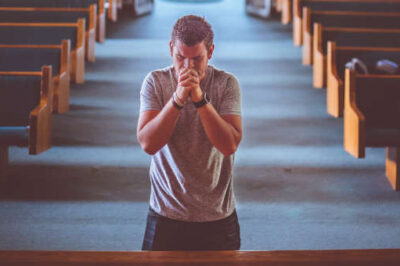When we Pentecostals retrace our historical steps all the way back to Azusa Street, many images come to mind. We associate this event with the doctrines of repentance and sanctification along with the subsequent experience of the baptism of the Holy Spirit. Other well-known testimonies include experiences of healing or other supernatural occurrences.
While we recognize that humility is a spiritual virtue, we hardly consider this quality a bedrock of Pentecostalism. After all, we are people of power, incorporating the message of victory in our music, preaching and experiences. However, many have forgotten the critical emphasis that our spiritual forefathers placed on humility.
Jesus’ teachings on humility are found throughout the Gospels and in the early church. Jesus said, “Whoever humbles himself like this little child is greatest in the kingdom of heaven” (Matt. 18:4, MEV). He demonstrated that His greatness contrasts with that of the powers and authorities of this world when He washed the feet of His disciples (John 13:5-20). This idea of Christ is echoed in James 4:10, which says, “Humble yourselves before the Lord, and he will exalt you” (ESV). Paul, in turn, emphasizes humility by referring to himself as a slave to the Philippians, intentionally lowering his honor status. Later, when he addresses Philemon by acknowledging himself as a prisoner, Paul humbles himself by taking on the identity of the lowest class of persons within his culture. Paul’s vision of Christ as recorded in Philippians 2:6-11 describes Him as One who made Himself humble to become eternally exalted.
Today, few are aware that the Azusa participants considered humility essential to the revival and the Holy Spirit’s infilling. This was not just a mild, temporary posture of humility. Those who came to experience Pentecost at Azusa reported a traumatic breaking process of intense self-surrender that was necessary for receiving the Holy Spirit. Participants assessed this to be the cost of a full Pentecostal participation. It was a process that the Holy Spirit put them through by which they died to self and truly began to share the burden and suffering of the cross. The severity of the humbling process would cause some to weep for days. Some would spontaneously confess, even to crimes, and others were driven to make restitution.
Not all could accept this complete surrender of self and ego. It was the most difficult for ministers. Preachers came for various reasons — some to protest, some to take charge and many others to sincerely receive from God. Whatever the case, ministers and those of respected position would endure the harder periods of the breaking process because they had more to lose. For some the cost was too much to bear and they left, unwilling to be brought so low in the humility that the Spirit required. Some ministers who did endure the requisite humility would remark how the sermons they had previously written now seemed prideful and inadequate, and they became content only to let God work through them.
So surrendered were the people at Azusa Street that for a time no one dared program the services by inviting speakers, preparing sermons or preselecting hymns. They were hesitant to even make necessary announcements. Instead, they waited on the Holy Spirit, unwilling to inject any “flesh” into the meetings. When someone did speak, they did so with the fear of God and knew precisely when to cease.
The participants at Azusa Street believed that what they experienced was only the beginning of a full restoration of gifts, but that the gateway to a further movement could only be realized through further encounters with the Holy Spirit’s process of humility. Even as the movement began to spread around the United States and the world, the testimonies of humility were still reported through letters mailed to the mission at Azusa Street. Many attested that if they ever became like mainstream churches — constructing buildings, organizing services and creating an ecclesial hierarchy — then the movement would lose its power.
Decades later, participants of that movement in 1906-1908 would continue to reflect on their experiences, recollecting witnessing the power of the Holy Spirit not only through manifestations but also through this distinctive process of humility.
Growing up in the Pentecostal church, we would occasionally sing “Old-Time Power” with the petition of both the preacher and congregation, “Lord, do it again!” regarding the early Pentecostal outpouring. Part of our spiritual heritage is the awareness to never be satisfied and lose our fire, but to continually seek all that God has to offer. When listening to the voices of the past who were instrumental in one of the most remarkable revivals of history, we are reminded to seek a Holy Spirit-imparted humility. {eoa}
Michael Blythe serves the church as a pastor, correctional chaplain and college faculty. He has presented at many conferences including the British New Testament Society, Society for Biblical Literature, and the Evangelical Theological Society. Michael’s publications have been featured in Pneuma: The Journal of the Society for Pentecostal Studies; Spiritus: ORU Journal of Theology; Asian Journal of Pentecostal Studies; The Journal of the European Pentecostal Theological Association; and others.
Read articles like this one and other Spirit-led content in our new platform, CHARISMA PLUS.








Leave a Comment
You must be logged in to post a comment.